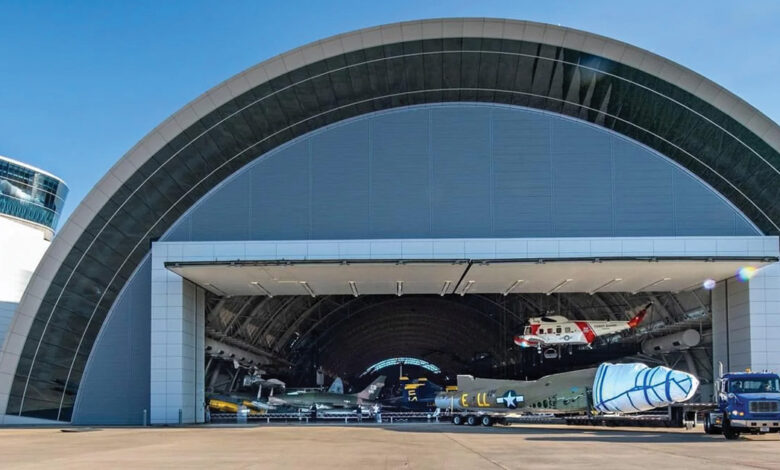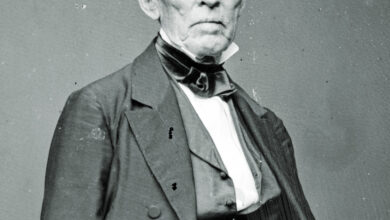
Shoo Shoo Shoo Baby, the Boeing B-17G featured on the cover of Aviation History’s Summer 2023 issue, has completed another journey and embarked on a new chapter in its existence. Since 1988 the bomber had been part of the collections of the National Museum of the U.S. Air Force in Dayton, Ohio, but in August the first pieces of the disassembled airplane arrived at the Smithsonian Institution’s Steven F. Udvar-Hazy Center, where it will eventually be reassembled and put on display. Currently a wing and fuselage are on display in the Boeing Aviation Hangar. In exchange, the Smithsonian had given the air force museum a B-17D it had in its collection called The Swoose.
Shoo Shoo Shoo Baby had a checkered career. Named after an Andrews Sisters’ song (with an extra “Shoo”), the B-17G landed in Sweden on May 29, 1944, after engine failures on its 24th mission over Europe meant it could not return safely to England. Following the war, the bomber served as an airliner and performed other tasks for owners in Sweden, Denmark and France. France returned the Boeing to the United States in 1972 and after being restored it landed at the Air Force’s museum.
The Swoose has had its own interesting career—and was also named after a song. The B-17D—or portions of it, anyway—reached the Philippines in October 1941 as war with Japan became increasingly inevitable. When war did come, the B-17—originally named Ole Betsy—participated in the fighting and was damaged enough that it had to be pieced together with parts from several wrecked bombers. It acquired its name from a song called “Alexander the Swoose,” about a bird that was half swan and half goose. With Captain Frank Kurtz as its pilot, the airplane served as the personal transport for Lt. Gen. George H. Brett. The B-17 returned to the United States for a war bond tour and after the war it served as a war memorial in Los Angeles before ending up, disassembled, at the Smithsonian’s National Air and Space Museum. The cobbled-together bomber is the only surviving B-17D. Kurtz, incidentally, named his daughter—the actress Swoosie Kurtz—after the airplane. The Air Force museum plans to restore The Swoose to its appearance when it served as Brett’s transport.





